8 alternatives to WooCommerce
If you’re looking to sell something online, there’s no shortage of great e-commerce platforms out there. WooCommerce is one of the most well-known options, and it allows you to sell your products directly on your WordPress site.
However, if WooCommerce doesn’t offer the functionality you need or you want to try another e-commerce platform, we’ve gathered the top contenders in this article. Take a look and decide if one of these e-commerce solutions can help you sell more online — or make it easier for you to manage your store on a day-to-day basis.
1. Jotform Store Builder
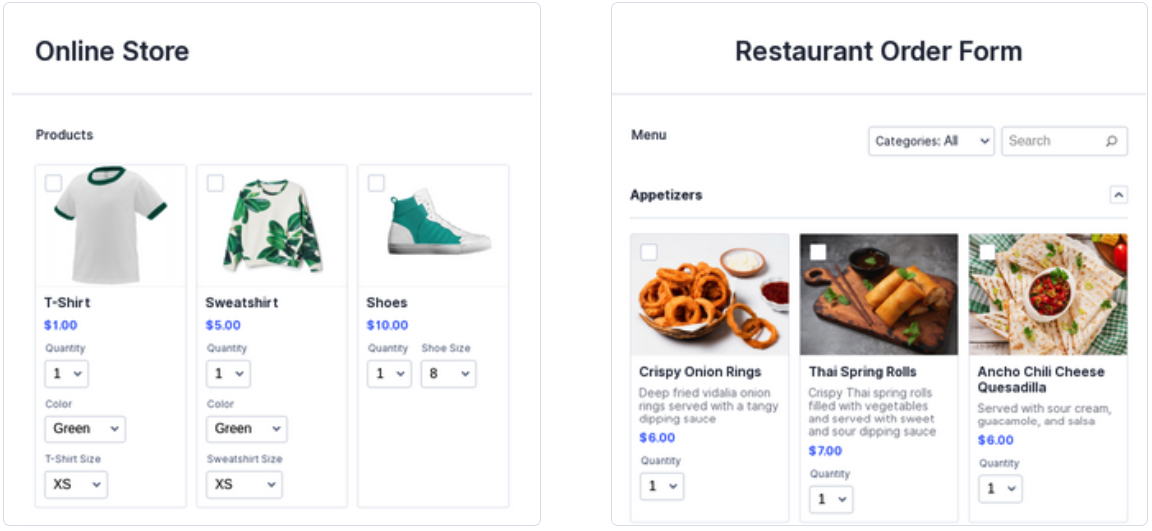
Similar to WooCommerce, Jotform Store Builder enables small businesses to sell online through their existing WordPress site using a shopping cart plug-in. But if you don’t want to use Jotform Store Builder with an existing website, it’s easy to publish your store independently and bring customers to it via links or QR codes.
One key benefit of Jotform Store Builder is that it’s a no-code option, meaning business owners don’t need to have any experience or knowledge building e-commerce websites to use it.
The drag-and-drop functionality is simple and intuitive, and Jotform offers more than 100 industry-specific templates to build on. You can also add specific e-commerce functionality to your online store, such as product lists or product images, using the 80-plus widgets Jotform Store Builder offers.
When it comes to payment options, Jotform Store Builder connects securely with over 25 payment gateways, including PayPal, Venmo, Square, and Stripe, so you can give your customers their preferred payment options.
Jotform Store Builder is free to use, and Jotform offers monthly plans starting at $34.
2. Shopify
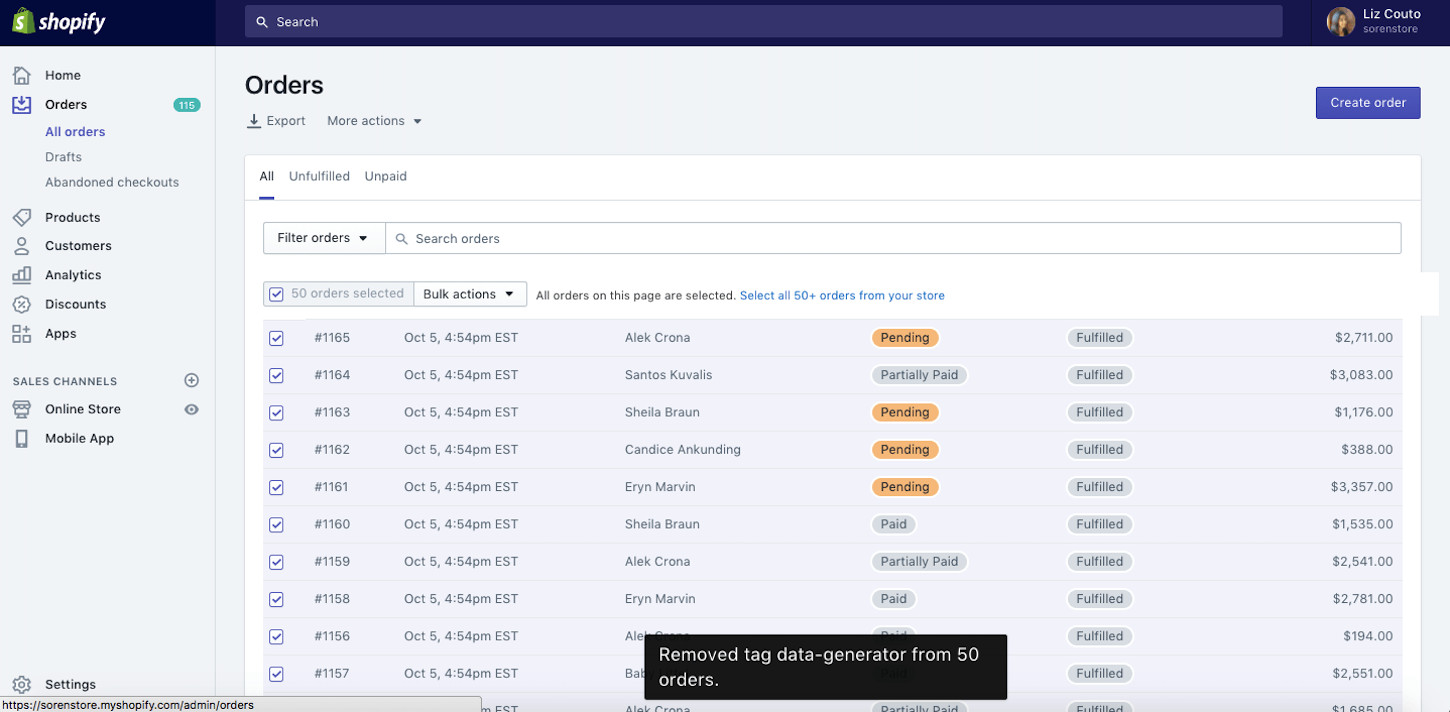
Millions of merchants actively use Shopify, which makes it the market leader in this space. If you’re selling many products and aren’t technical, this is an ideal option.
Whereas WooCommerce is a self-hosted e-commerce platform, Shopify is an all-in-one e-commerce offering. This means that instead of getting a domain name and a security (SSL) certificate, setting up hosting, and coding anything, Shopify is equipped to help you sell online immediately.
Shopify also includes key features like abandoned cart recovery, over 100 payment gateways, discount and coupon code functionality, more than 2,400 apps in their app store, and unlimited product options.
Pricing starts at $24 per month when paid yearly, and they offer a free 3-day trial. Popular brands — including Hasbro, Heinz, Penguin Books, Red Bull, and even the Kardashians (KKW Beauty, Kylie Cosmetics, and Good American) — all use Shopify to sell online.
Just so you know
Already tried Shopify? Explore five of the best Shopify alternatives to find something that works for you and your business.
3. BigCommerce

BigCommerce offers enterprise-level e-commerce features at a small business price point. In addition to abandoned cart recovery, promotional codes and discounts, and analytical tracking and reporting tools, BigCommerce also makes it easy to sell directly on platforms like Instagram, Facebook, and Amazon. They provide 24-7 phone, email, and live chat support, and they offer a user forum and a robust help center.
Many big-name brands — such as Camelbak, YETI, Natori, and Pandora — trust BigCommerce with their online stores. BigCommerce offers a 15-day free trial, and paid plans start at $29 per month (if paid yearly).
4. Adobe Commerce

Adobe Commerce, formerly known as Magento, has two versions:
- Magento Open Source provides basic e-commerce functions free of charge.
- Adobe Commerce provides advanced e-commerce features as part of a premium paid plan.
Both Magento Open Source and Adobe Commerce come complete with support for several languages. This differs from WooCommerce, which requires a plugin to run your online store in multiple languages and currencies.
While Adobe Commerce has lots of powerful features, the setup and customization process is more technical and usually requires a developer or team of developers. While that might be a hurdle for small businesses, major fashion brands — including Hermès, Christian Louboutin, Missguided, and BVLGARI — all turn to Magento to power their online shops.
Prices vary greatly for Adobe Commerce. You can download the core software for free with the Open Source version, but you’ll still need a hosting service like Amazon Web Services, and you’ll have to pay for custom site development work. Contact Adobe Commerce directly for pricing.
5. Wix eCommerce

Much like how WordPress has WooCommerce, Wix has Wix eCommerce. For the most part, Wix has a much gentler learning curve. It has a drag-and-drop interface and over 500 free templates you can customize, allowing you to add videos, images, and text wherever you’d like on your site.
Bear in mind that Wix doesn’t allow content from one template to be transferred to another template. So if you’re on the fence about backgrounds, you’ll have to manually copy over all the content you’ve created on your original template into the secondary template of your choosing.
Currently, KLAÜSING, Michal Oren Jewelry, Shea Brand, and Fanstereo harness Wix eCommerce for their online sales. In addition to a completely free plan — which requires Wix branding in the top right-hand corner of your site — Wix offers paid plans that range from $17 to $159 per month.
6. Weebly eCommerce
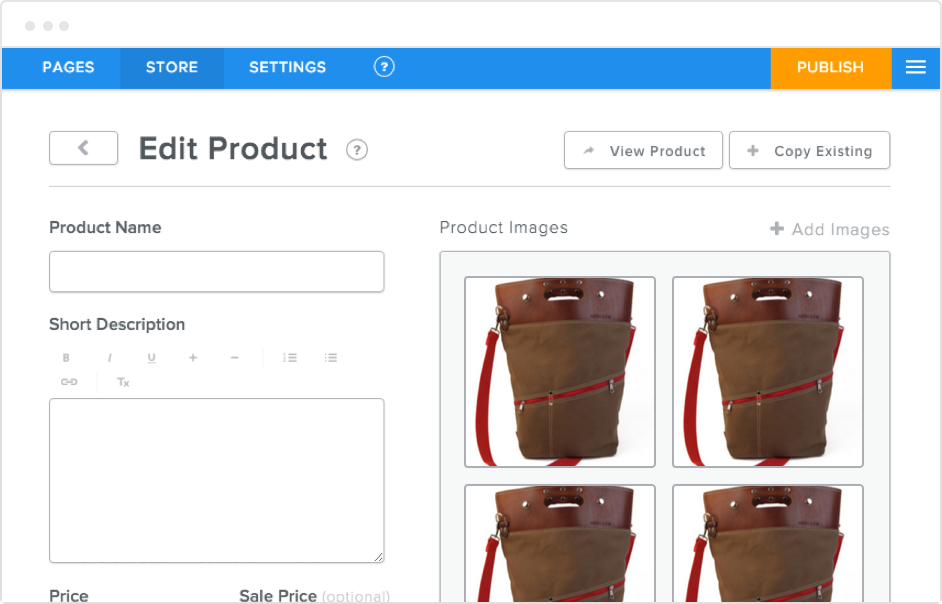
Similar to Wix eCommerce, Weebly eCommerce is best suited for small businesses looking to sell online for the first time.
Adding new products is a breeze. Simply enter the item’s name, add a price, and include a product description. If you opt to include color variants, such as purple or green, Weebly displays a color swatch next to each product to help you stay on top of inventory.
Weebly is powered by Square. This partnership can be especially convenient if you also have a retail store, pop-up shop, or do stints at local trade shows or farmers markets.
However, Weebly may not be the right fit for larger businesses. It lacks larger data tools — such as inventory management — and offers limited checkout options, including a non-customizable checkout page. Combine these two factors with the fact that Weebly also doesn’t allow you to sell across channels like Facebook or Instagram, and you can see why the platform might not be ideal for larger-scale operations.
Currently, Weebly eCommerce brands include Merchant Method, Backwoods Beer Soap, Alibi Interiors, and Saving a Million Turtles. There’s a free version of Weebly and paid plans start at $10 per month.
7. Volusion

If you’re looking for an alternative to BigCommerce or Shopify, Volusion might be a decent fit. From themes and plugins to customer relationship management (CRM) tools, Volusion is ready to roll when you are.
The platform offers built-in on-page SEO management, email marketing tools, and social media sharing and integrations to stay on top of your digital presence. Plus, 24-7 dedicated customer support makes it a breeze to iron out any problems in the event something on your site goes awry.
Current Volusion customers include Intel, Avance Electronics, Sigma Beauty, and Evolution Motorsports. Pricing starts at $35 per month, and they offer a free 14-day trial.
8. Salesforce Commerce Cloud
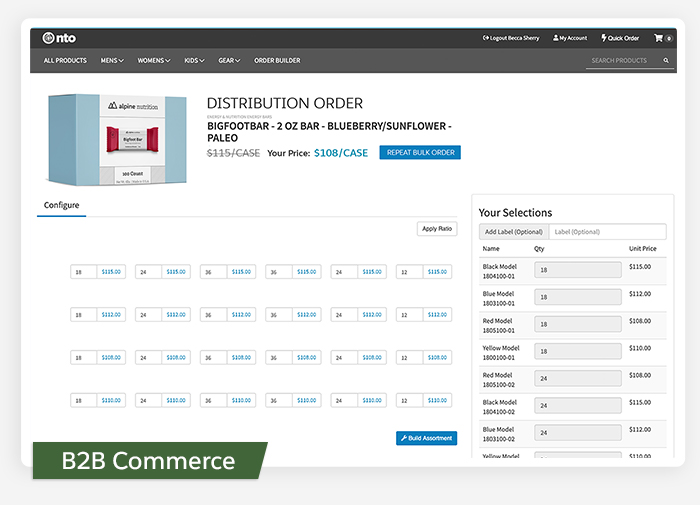
Salesforce Commerce Cloud is an e-commerce option that’s ideal for enterprise companies. If you’re already using the suite of Salesforce products and have the budget, Commerce Cloud is like a blank canvas. It can integrate with all of your other software — as well as pretty much any sales channel from your website and social media — to your brick-and-mortar locations.
Commerce Cloud is highly scalable and can deliver cutting-edge AI-powered shopping experiences to your customers. In fact, Commerce Cloud can track SKU-based, price-based, and category-based data per customer to offer smart suggestions based on previous searches or purchases.
At the moment, customers such as Adidas, Billabong, Columbia, Ralph Lauren, and UGG rely on Commerce Cloud to connect with their customers. Because so much customization is needed, brands can expect to pay more than $100,000 to get it up and working.
With all these WooCommerce alternatives, you’ve got a lot of options at your fingertips. If you’re not sure which platform to go with, keep in mind that many offer free trials or free plans, so you can try them out without incurring any costs. Be sure to look closely at the features available, the ease of use, and security capabilities when making your decision.





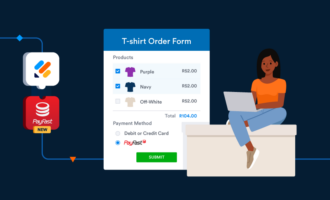

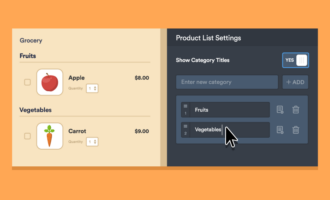














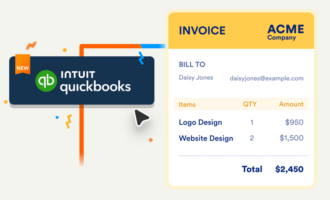

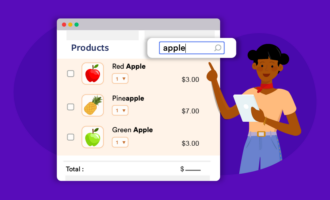


















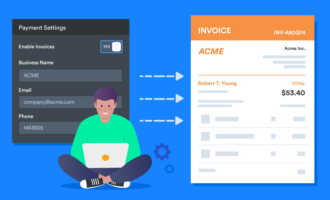

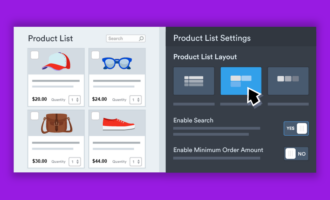

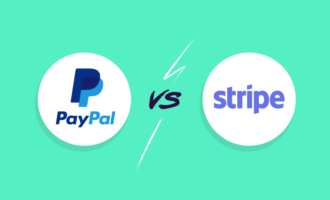












Send Comment: